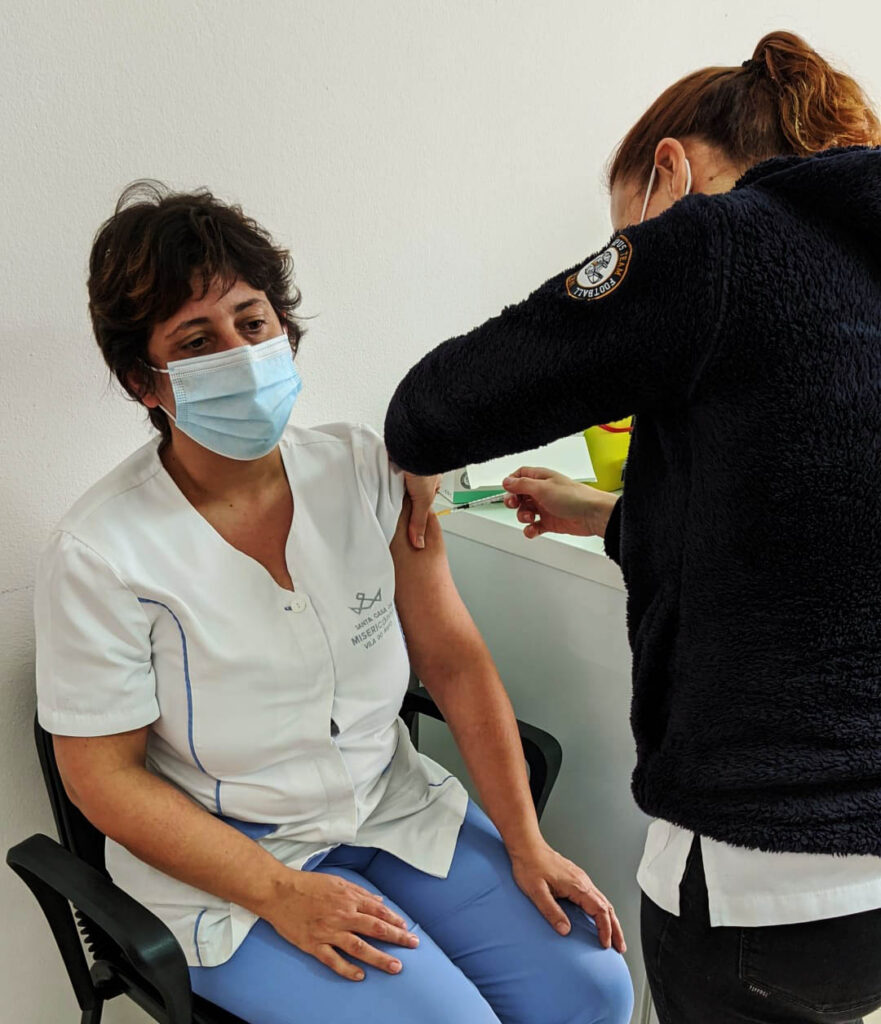Vaccination in the European Union (EU) started precisely a year ago, with more than 78% of adults fully vaccinated, said today the president of the European Commission, asking that Member States continue this "long road" with booster doses.
“Exactly a year ago, covid-19 vaccination campaigns started across Europe and we have come a long way in the space of one year: more than 78% of adults in the European Union are now [fully] vaccinated,” declared the community executive leader, Ursula von der Leyen, in a video message released today.
In the post made on the social network Twitter, the responsible stressed that the current “increase in the number of infections and in particular the rapid spread of the [variant] Ómicron make vaccination even more important”.
“Vaccinations, including booster shots, are currently our best protection. We have enough doses so that everyone can be vaccinated and receive a booster vaccine, so let us protect ourselves and others,” urged Ursula von der Leyen.
“This is our best chance of beating this virus,” said the official.
In the same message, the leader of the community executive also took the opportunity to thank all professionals in the health sector for working for hours on end “to administer the vaccines” and also to take care of infected patients.
Data from the European Center for Disease Prevention and Control (ECDC) on vaccination in the EU reveal that 79,1% of the adult population in the community is fully vaccinated, a percentage that is 67,8% if all age groups are considered.
In absolute terms, ECDC data – which are based on notifications from Member States and are available on the agency's website on vaccination – reveal that 289 million adults in the EU are fully vaccinated.
As for the total population, there are 303 million fully inoculated.
Covid-19 has caused more than 5,39 million deaths worldwide since the start of the pandemic, according to the latest report by the Agence France-Presse (AFP).
In Portugal, since March 2020, 18.874 people have died and 1.279.785 cases of infection have been recorded, according to data from the General Directorate of Health.
The respiratory disease is caused by the SARS-CoV-2 coronavirus, detected in late 2019 in Wuhan, a city in central China, and currently with variants identified in several countries.
A new variant, Omicron, classified as a concern by the World Health Organization (WHO), has been detected in southern Africa, but since the South African health authorities raised the alert on 24 November, infections have been reported in at least 110 countries from all continents, including Portugal.



















Comments